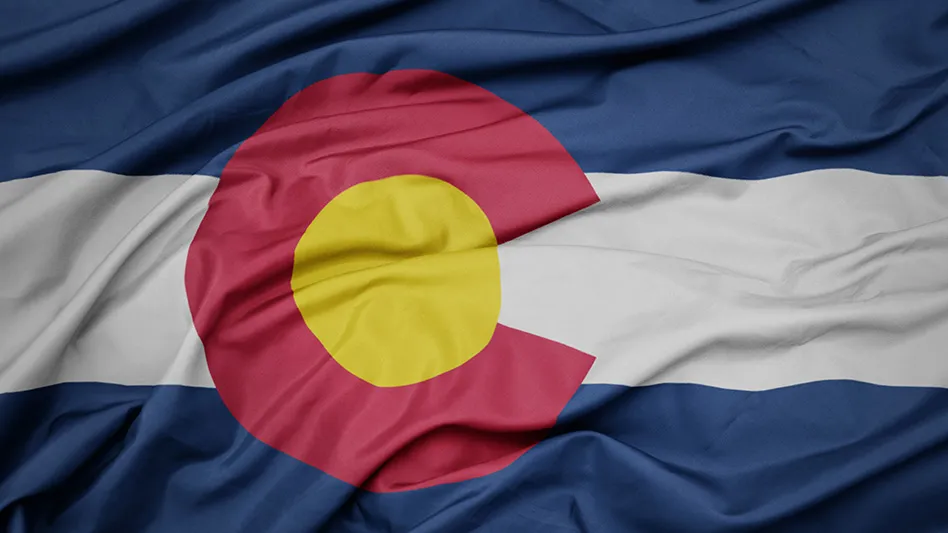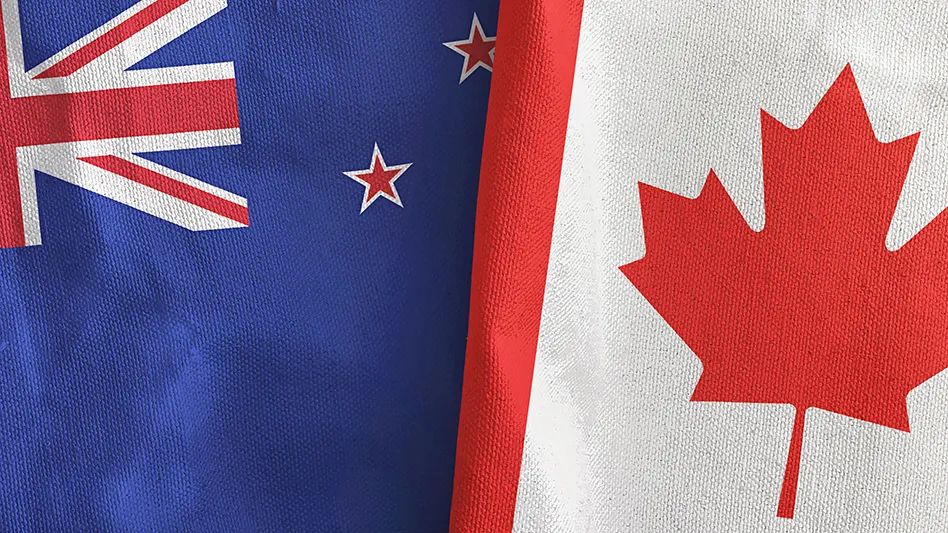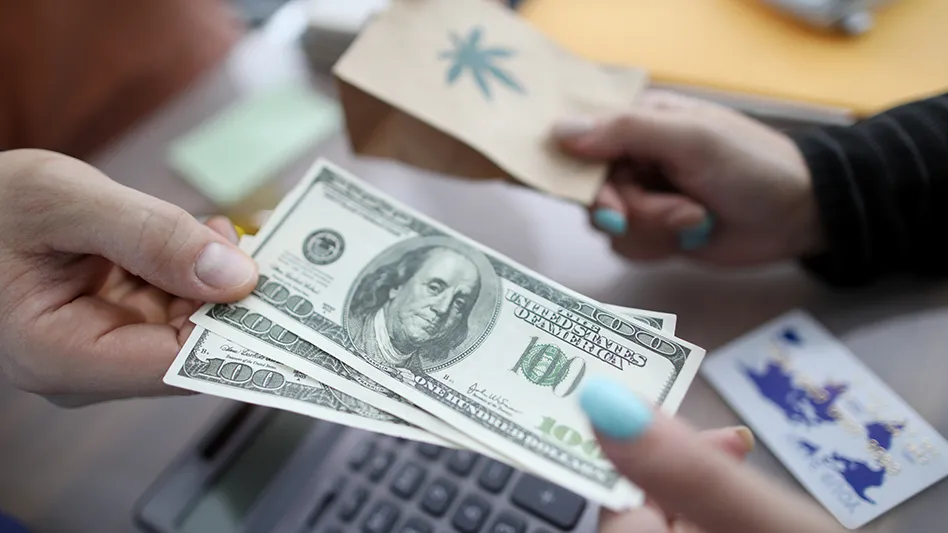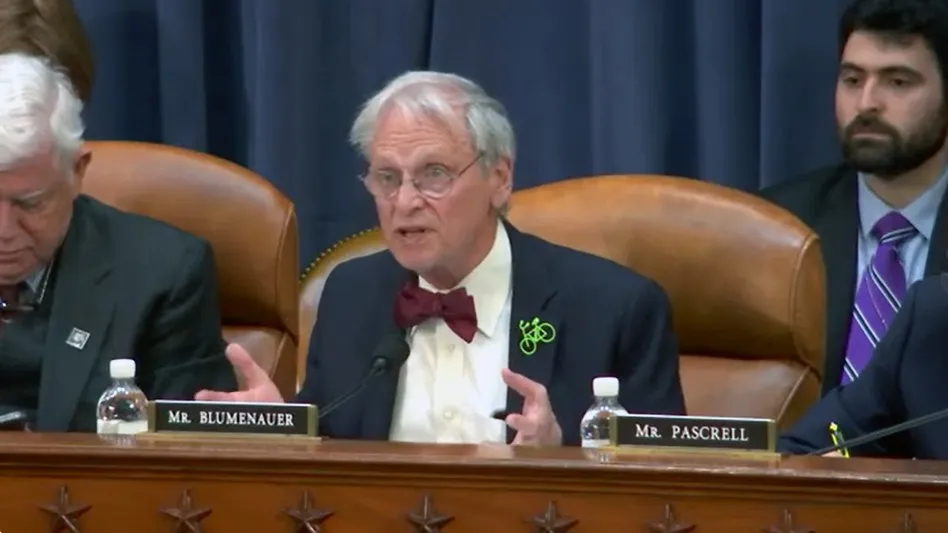
Alaska is about to roll out the country’s newest and perhaps most far-flung regulated cannabis market, but businesses inaccessible by road are hardly the most taxing concern. Instead, regulators and business owners are scrambling to figure out how to address one of the most basic elements of a regulated marketplace: How to process the cut that’s due to the state.
The soon-to-be corporate taxpayers and officials want the same thing: An orderly transfer of $50 per ounce of marijuana sold into state coffers. But the feasibility of orderly payments—expected to total between $5 million and $20 million next year (according to the Alaska Dispatch News)—is far from assured.
That’s because banking problems already besetting state-legal cannabis businesses across the United States may be amplified in Alaska. None of the state’s banks or credit unions are willing to publicly serve the industry, making it difficult for businesses to smoothly pay taxes electronically. And the state’s budget-tightening tax bureaucracy does not currently accept cash payments.
It’s a Catch-22 that led the Alaska Department of Revenue to briefly consider placing special reverse ATMs around the state, which is about 10 times larger than Washington and six times as vast as Colorado.
“That was my top pick,” says Brandon Spanos, deputy director of the Alaska Department of Revenue, of the reverse-ATMs concept. The idea fell off the table, he says, after listening sessions with industry insiders in Anchorage, Fairbanks and Juneau.
Business owners worried about electrical outages and software glitches, and Spanos says it was unclear if banks and federal authorities would agree delivery people were acting as agents of the state, alleviating the regulatory burden of processing state-legal drug money.
“The banks will accept it from us once we have possession of it as tax revenue,” Spanos says, but that’s one of the few certainties.
Alaska tax authorities will have a work-around proposal ready for businesses that get licenses early next year, Spanos says. It likely will involve using a third party to turn wads of cash into electronic tax deposits.
“We don’t know exactly how it will work out, if it would be an ancillary industry. I could envision maybe it’s another taxpayer,” he says, recalling that at one listening session “somebody said, ‘Why can’t I just start a business where I take cash from the industry and pay the state electronically?’”
“We would love that,” Spanos says, if banks and their regulators would allow it.
Spanos’ research into cannabis tax payment options included reaching out to financial institutions in the hope they would moot the tax-collection dilemma by providing bank accounts to the industry. None were receptive.
The enormity of the state has been key to considerations, as has uncertainty about the size of the market. “We really have no idea how many taxpayers we’re going to have,” Spanos says. “We could have one up in Fairbanks or we could have 30 up in Fairbanks.”
Anticipating unbanked businesses, Spanos says the state ultimately may end up collecting cash in addition to proposed third-party deposits, though where and how remain unclear. “If we have a method for them to come to a state agency and drop it off, it will probably be a more secure site,” he says.
Banking Woes Exacerbate the Problem
In the lower 48, banks also shy away from the state-legal cannabis industry to avoid the risk of additional oversight and the cost of added reporting requirements. However, many cannabis businesses do pay taxes electronically.
In Washington state, for example, just 30 percent of marijuana industry licensees paid state taxes in cash in August and September. Mikhail Carpenter, a spokesperson for the Washington State Liquor Control Board, says the rate has been fairly stable since retail dispensaries opened in July 2014.
Colorado does not keep statistics on the share of state pot taxes that are paid electronically versus in cash, says Ro Silva, acting communications director for the Colorado Department of Revenue. But fewer businesses are believed to use electronic payment than in Washington, and insiders bandy about an estimate of 40 percent or higher for the share of cash payments.
The trick for marijuana business owners who wish to keep a bank account is discretion, says Taylor West, deputy director of the National Cannabis Industry Association.
Generally businesspeople have to work to build personal or professional relationships with bankers, she says, some of whom give a wink and nod, or instructions not to advertise the arrangement.
Joshua Kappel, a partner at the law firm Vicente Sederberg, which works with hundreds of cannabis businesses, says there’s no go-to bit of advice for state-legal pot pioneers other than to do whatever they can to find a financial institution willing to work with them.
“There’s a risk if you use your personal account for business that you will lose your personal account, too,” he notes.
Banks that do accept cannabis industry accounts “are all flying under the radar because they don’t want a lot of people opening accounts at the same time," Kappel says.
Some banks that have openly stated their interest in the wide-open market niche quickly U-turned, he points out, including Oregon-based MBank. Last January, MBank said it would accept Colorado cannabis businesses, but quickly took back that offer, and then in April purged its remaining 70 cannabis industry clients.
“We determined the bank is not big enough to provide and support all of the compliance components required," MBank President and CEO Jefry Baker said in a statement to the media.
Previously, the Colorado Springs State Bank openly courted the cannabis industry before closing about 300 clients’ accounts in 2011.
“There are a couple banks in Colorado that openly work with marijuana businesses, but they don’t do press around it,” says industry attorney Brian Vicente of Vicente Sederberg. “Historically, every time someone sends out a press release saying, ‘Hey, we’re the marijuana bank!’ immediately the feds shut them down [from providing services to the industry]. It’s not a smart business move.”
The problem was supposed to be getting better after the Treasury Department’s Financial Crimes Enforcement Network (FinCEN) last year issued guidelines to banks working with cannabis businesses, requiring them to file special suspicious activity reports on dealings with state-legal businesses. But few financial institutions found the rules appealing.
“FinCEN’s guidance was directed at financial institutions, which we regulate for anti-money laundering purposes,” says FinCEN spokesman Stephen Hudak, who describes state taxation problems as outside the purview of the network.
“We sometimes coordinate to take joint, or concurrent, enforcement actions with state regulators,” he says, “[but] we’re not in a position to offer advice to states on tax-collection issues.”
The reporting burden from FinCEN and the lack of clear permission to bank the industry from regulators such as the Office of the Comptroller of the Currency, the Federal Deposit Insurance Corporation and the Federal Reserve—institutions from which banks derive their ability to operate—contribute to the industry’s financial headache.
The posture of bank regulators is somewhat similar to that taken by the Justice Department, which allows states and American Indian tribes to regulate sales of federally illegal cannabis products, but reserves the right to treat industry participants as criminals.
Vicente says, however, bank leaders’ conservative nature probably is more of a problem than the actual threat of federal enforcement actions, should banks move en masse toward accepting cannabis accounts.
In the meantime, the zeal with which individual banks scan account-holders with the intent of booting marijuana businesses can fluctuate.
The large institution Capital Group, for example, in July found the word “marijuana” in the Marijuana Policy Project’s (MPP) name and requested the advocacy group find a new bank for its employee retirement accounts. The decision was reversed after outside interests made it clear that MPP does not grow or sell marijuana. A company spokesman said the initial action was taken because of the “complex and time-consuming” burdens of dealing with marijuana-related businesses.
Alaska businessman Leif Abel says he’s not even going to bother trying to get a bank account for his budding enterprise, Greatland Ganja, LLC, through which he intends to cultivate marijuana and process extracts for various retail stores.
But Abel, a member of the Cannabis Business Times’ editorial advisory board, says there are workarounds he and his business partners are considering and that he’s not losing sleep over how to pay state taxes.
“The chances are we will be able to pay electronically,” he says. “With proper planning, there are things you can do. There are any number of creative ways to be able to hold bank accounts.”
Among the options cannabis businesses could consider is setting up a parent company with an innocuous name, or putting enough cash in a money market account to pay anticipated tax bills, he says.
The third-party idea for businesses that have only cash to offer the state, he says, is far from ideal and likely will add 1 to 3 percent to the cost of tax bills in payment to tax attorneys or accountants. Yet he says there’s no better option proposed for such businesses.
“It’s still going to make it difficult for people in the rural areas,” says Abel, who has worked closely with Alaska legislators in his role as executive director of the Coalition for Responsible Cannabis Legislation and chair of the Kenai Peninsula Borough Marijuana Task Force. “They’re going to have to fly with a suitcase full of cash and go to a CPA or a tax attorney, and have that guy help pay their taxes. It’s rather clunky.”

Until that legislation [to allow banks to serve cannabis businesses] happens, the state of Alaska is going to have to deal with these businesses being stuck. I’d suggest Alaska invest in some good cash counters.” —Taylor West, National Cannabis Industry Association
He says it’s probably unwise to use personal bank accounts to pay business taxes. “Until this is no longer a federal crime, you want to separate your personal as far as possible from your business, because if anything happens — if accounts are frozen or money seized, or there’s some misunderstanding between the feds and the state — you want a clear delineation,” he says.
Spanos is hopeful financial institutions ultimately will step forward — noting several credit unions in Washington state are known to accept cannabis businesses — but the chances of that happening soon in Alaska appears slim.
“We’re supposed to start accepting cash this summer,” he says. “I do not expect any credit unions or banks to step forward before then. Those that I’ve spoken to say, ‘Maybe it will happen, but it won’t be for two to three years’” (a time frame he hopes will shrink).
Being Allowed to Pay Taxes Is a Step … Up a Mountain of Challenges
Alaska tax officials, of course, aren’t the only ones who will expect payments from the state’s cannabis crop. The Internal Revenue Service, too, will have its hand out for payment, even though federal law deems the commercial activity a crime.
Paying federal taxes, too, is no walk in the park, though the path for cannabis businesses nationwide was waxed by legal action from Colorado medical marijuana dispensary Allgreens, which the IRS fined $25,000 when it paid in cash.
The IRS agreed to refund the fine in March and in June issued a policy memo saying businesses that demonstrate they cannot get a bank account will not incur a 10-percent penalty for paying in cash.
That’s a step forward for the industry, but there are few locations where businesses can drop off cash for the federal government — with only one location where they can do so in Colorado. The IRS has two offices in Alaska, one in Anchorage and another in Fairbanks that’s closed until further notice. An IRS spokesman was unable by press time to clarify where Alaska businesses can make cash deposits.
“Prior to this, the IRS’ position was that you could launder money, and that’s how you can pay your taxes,” says Colorado attorney and Colorado NORML Executive Director Rachel K. Gillette, who represented Allgreens. The previous policy suggested buying money orders to make wire transactions or using a third party, such as an accountant, to deposit the taxes.
Though businesses no longer face a fine if they pay the IRS in cash, the situation remains far from perfect, Gillette says, with unbanked businesses from across Colorado being forced to drive to just one location in Denver to drop of bundles of dollar bills. Some arrive with $500,000 in cash, she says, creating obvious safety concerns.
“Colorado is a very large state. It can be an eight-hour drive through three mountain passes [to reach Denver],” she says. “It’s a really difficult situation for marijuana businesses that are trying to do the right thing, [and] the root of the problem is lack of access to banking.”
Gillette says the status quo wastes the time and resources of both businesspeople and tax collectors, and makes it difficult for cash-only businesses to be totally transparent if audited.
“I cannot understand why the [federal] government is taking such a stand,” she says of banking rules. She believes federal regulators may have taken a more active role discouraging banks from working with the industry as the public began embracing legalization. “We didn’t have this problem where people weren’t able to get bank accounts until around 2012,” she says. “I like to call it backdoor enforcement. ‘[The feds] can’t go in the front door with guns a-blazing anymore.’”
Oregon will accept cash for taxes from recreational cannabis businesses once they are up and running.

It’s getting worse, [and] the banks don’t seem like they’re going to relax their rules anytime soon. We’re talking with anyone who has an idea.” —Fiona Ma, California Board of Equalization
In California, state tax collectors do not keep records on the percentage of cannabis businesses paying taxes in cash. But it’s a sufficiently significant concern for the California Board of Equalization, which collects sales taxes, to actively convene stakeholder discussions on how to bank the industry, citing, among other reasons, improving highway safety and easing audits.
Fiona Ma, one of five members on the Board of Equalization, says she’s actively exploring new approaches that could provide dispensaries access to electronic tax filing. She says the banking crisis appears to be getting worse for the industry in California.
In mid November, Ma says, a 160-employee cannabis business was forced to hand-deliver $400,000 in cash to the board’s San Francisco office after their long-time bank cut them loose.
It took more than four hours to process the cash, she says, and the board is now investing in new counting machines.
“It’s getting worse, [and] the banks don’t seem like they’re going to relax their rules anytime soon,” she says. “We’re talking with anyone who has an idea.”
Waiting on Banking Legislation
Ma says small community banks want to serve their neighbors in the cannabis industry, but are unable to take on the compliance costs. She hopes federal regulators will relax rules very soon.
“In Colorado what they’re doing is basically ‘don’t ask, don’t tell.’ Everyone knows it’s cannabis money, but they’re not going to ask permission anymore,” she says, something she considers a possible outcome for California, too, if banks decide to look the other way when an innocuous-sounding business sets up an account.
“The federal government has to allow some flexibility,” Ma says. “The small banks want to do it. They should be allowed to do it. It has to be affordable. There has to be a path for them.”
Though the federal government allows state-regulated marijuana markets, legislation to address the banking crisis has been sitting on the shelf for years.
West sees a problem with older committee chairmen, and points out there’s remarkably bipartisan support for many cannabis measures, including a House-passed resolution that sought to ban the Treasury Department from going after banks that provide services to the cannabis industry. That measure wasn’t included in a large spending deal last year, but a similar prohibition narrowly passed the Senate Appropriations Committee 16-14 in July, and West hopes it may be in a future spending bill — even if that wouldn’t be a long-term fix.
“Until that legislation happens, the state of Alaska is going to have to deal with these businesses being stuck,” she says. “I’d suggest Alaska invest in some good cash counters.”
Abel, for one, is taking the challenge in stride.
“Everybody’s jumpy right now, so every little thing seems like a big deal. But the wrinkles will work themselves out, and this isn’t going to be one that stops it,” he says, optimistically noting, “if the banking climate changes a little bit, there’s no problem all of a sudden.”

Explore the January 2016 Issue
Check out more from this issue and find you next story to read.
Latest from Cannabis Business Times
- Cannabis Rescheduling: Where Do We Go From Here?
- Verano Opens MÜV Haines City, Company’s 75th Florida Dispensary
- Ascend Wellness Holdings Reports $142.4M Net Revenue for Q1 2024
- Trulieve Reports $298M in Revenue for 1st Quarter 2024
- SNDL Reports 1st Quarter 2024 Financial, Operational Results
- Leading Cannabis Brand STIIIZY Expands Retail Presence With Fresno Location Opening Saturday, May 11
- The Cannabist Co. Reports 1st Quarter 2024 Results
- Green Thumb Reports $276M Revenue for 1st Quarter 2024





